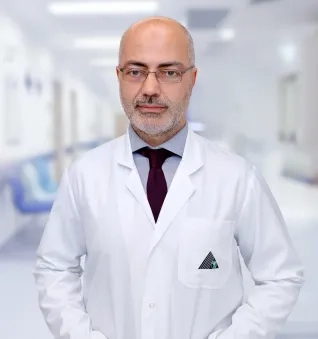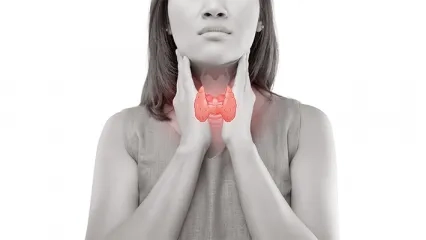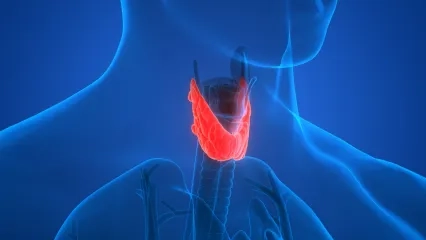Alo Yeditepe
Alo Yeditepe
Assessment of Hyperthyroidism
Overwork of the thyroid gland is called hyperthyroidism. In such a patient, the hormones T3 and T4 have increased in the blood.
What are the Symptoms of Hyperthyroidism?
The thyroid gland is like the body's gas pedal; if you press too much on the gas, many metabolic activities in the body accelerate; weight loss occurs because the metabolism accelerates, sleep rhythm is disrupted, excessive mobility, inability to stay in place, palpitations and excessive sweating occur because the heart works fast, and the intestines need to go to the toilet frequently because they work fast. Psychiatric problems may also occur.
How is Hyperthyroidism Diagnosed?
It is sufficient to see that T3 and T4 are high in the blood in order to diagnose hyperthyroidism.
How Does Hyperthyroidism Work?
A three-step treatment approach is applied. Some drugs suppress thyroid hormone secretion in the first step. Often, the patient is given these drugs first and is followed up. Second-line treatment is started when the drug is not enough, very high doses of the drug are needed or there are side effects due to the drug. This is radioactive iodine treatment. By looking at the size of the thyroid gland and the amount of hormones it secretes, a calculation is made, and patients are given the appropriate dose of radioactive iodine to drink. The effect of radioactive iodine will appear within a few months. This treatment often solves the problem, but it is not much preferred in children and young patients. In these patients, the option of removing all or most of the thyroid tissue by surgery should be applied.
This content was prepared by Yeditepe University Hospitals Medical Editorial Board.
”
See Also
- What is a Parathyroid Adenoma? Symptoms and Treatment
- What is Calcitonin Hormone? Calcitonin Hormone Deficiency
- If the Size of the Thyroid Nodule is Over 4 cm, Be Cautious!
- How Does High Calcium in Blood Cause Complaints?
- A First in the Literature: Parathyroid Cell Obtained from Thyroid Stem Cell
- Diagnosis in Thyroid Diseases
- Hashimoto's Thyroid Disease
- Thyroid Tumor (Cancer)
- Graves' Disease
- Thyroid Nodules
- Thyroid Surgery
- Assessment of Hypothyroidism
- What is the Harm of High Calcium in the Blood?
- Frequently Asked Questions in Thyroid Diseases
- Atomic Therapy (Radioactive Iodine Therapy)
- Which Thyroid Nodule Can Be Treated Without Surgery?
- She Was Relieved of Her Pain When the Missing Parathyroid Gland Was Found in The Chest Cavity
- Thyroid Storm Can Turn Life Upside Down
- Recovered From Thyroid Nodule with Needle Melting Method
- Stress Triggers Thyroid Diseases; These Occupations Are At Risk!
- Turkish Physician Developed a Novel Method for Parathyroid Transplant
- What Should Be Considered After Parathyroid Surgery?
- Parathyroid Diseases and Treatment
- They Said It Was Thyroid Cancer, But It Turned Out to Be Parathyroid Adenoma!
- The Frequency of Thyroid Nodules and Thyroid Cancer in Young People is Increasing!
- Thyroid Cancer Treatment Is Possible Without Removing The Entire Thyroid Gland
- Thyroid Storm
- T4 Hormone in 13 Headings
- Questions About Thyroid Diseases
- Thyroid Diseases
- Goiter (Thyroid Gland) Biopsy
- Radiofrequency Therapy in Thyroid Nodules
- What Is Autoimmune Hypoparathyroidism or Hypocalcemia?
- What Is The Loss of Low Calcium Level in Blood?
- What Is The Symptoms of Calcium Level Elevation (Hypercalcemia)?
- How It Is Made The Parathyroid Adenoma Operation?
- What Is Parathyroid Hyperplasia?
- Parathyroid Tumors
- What Are The Parathyroid Glands?
- The Incidence of Thyroid Cancer Has Increased! There is Turkey in the Research!
- Key Surgery Performed In Turkish Hospital For First Time
Alo Yeditepe






